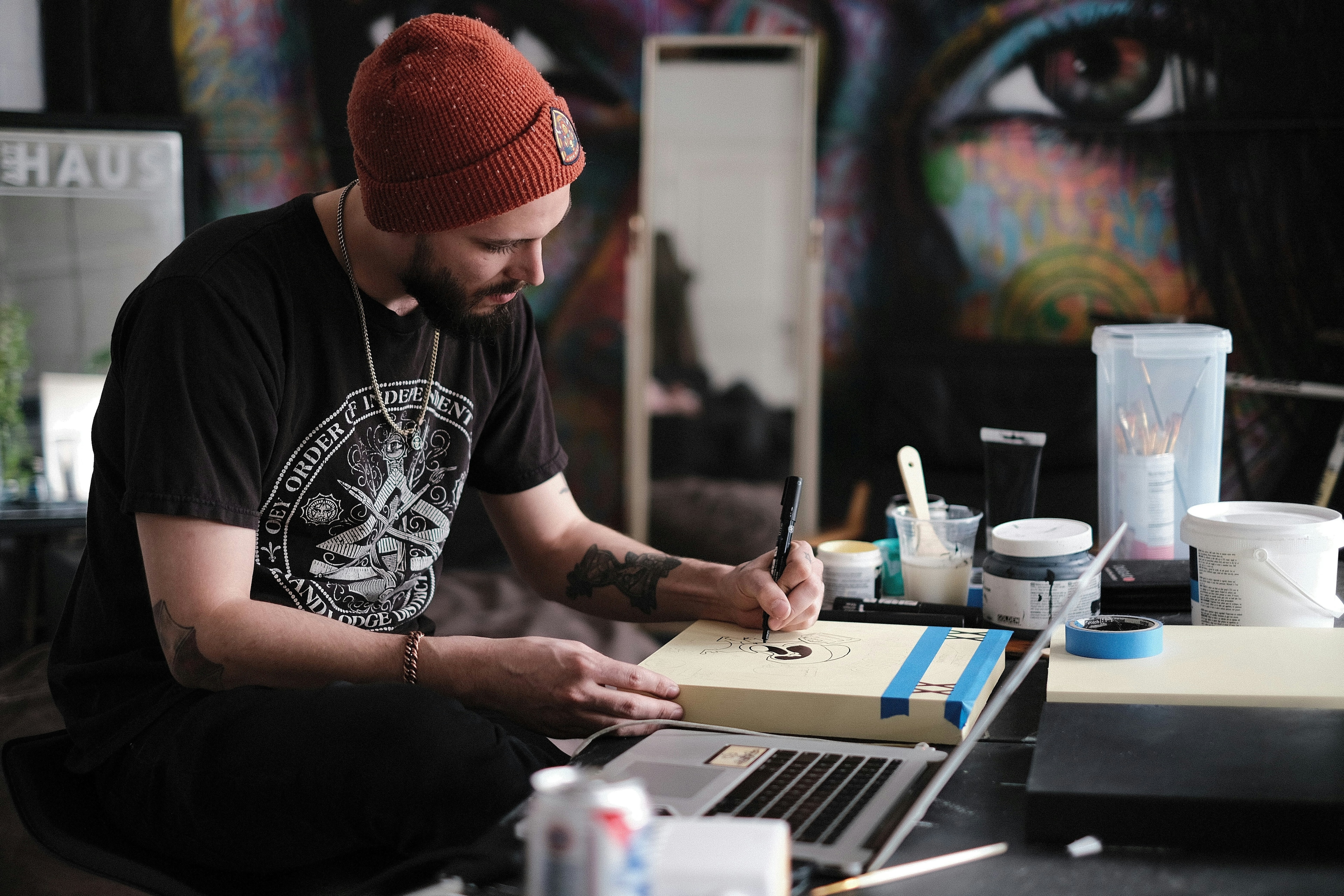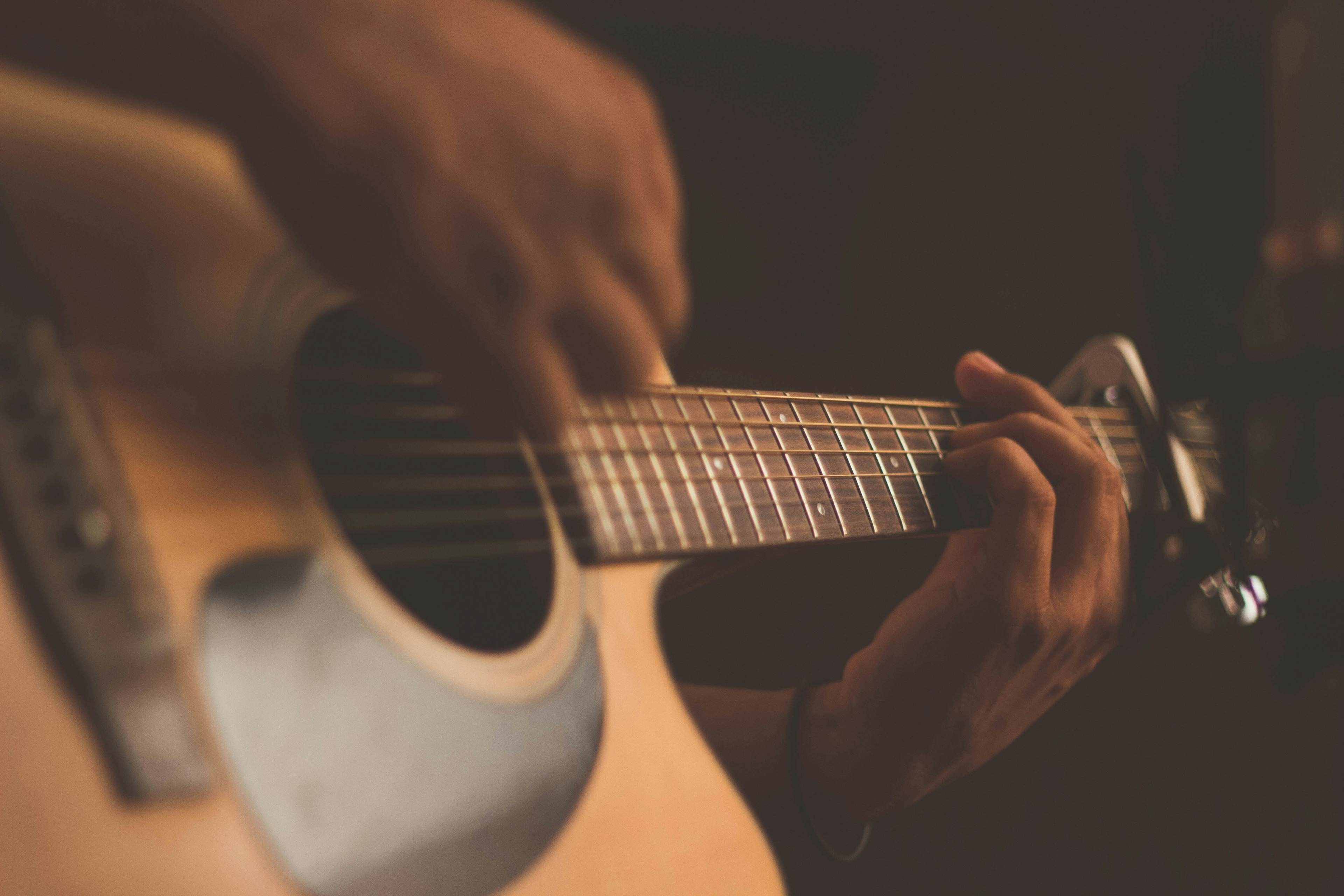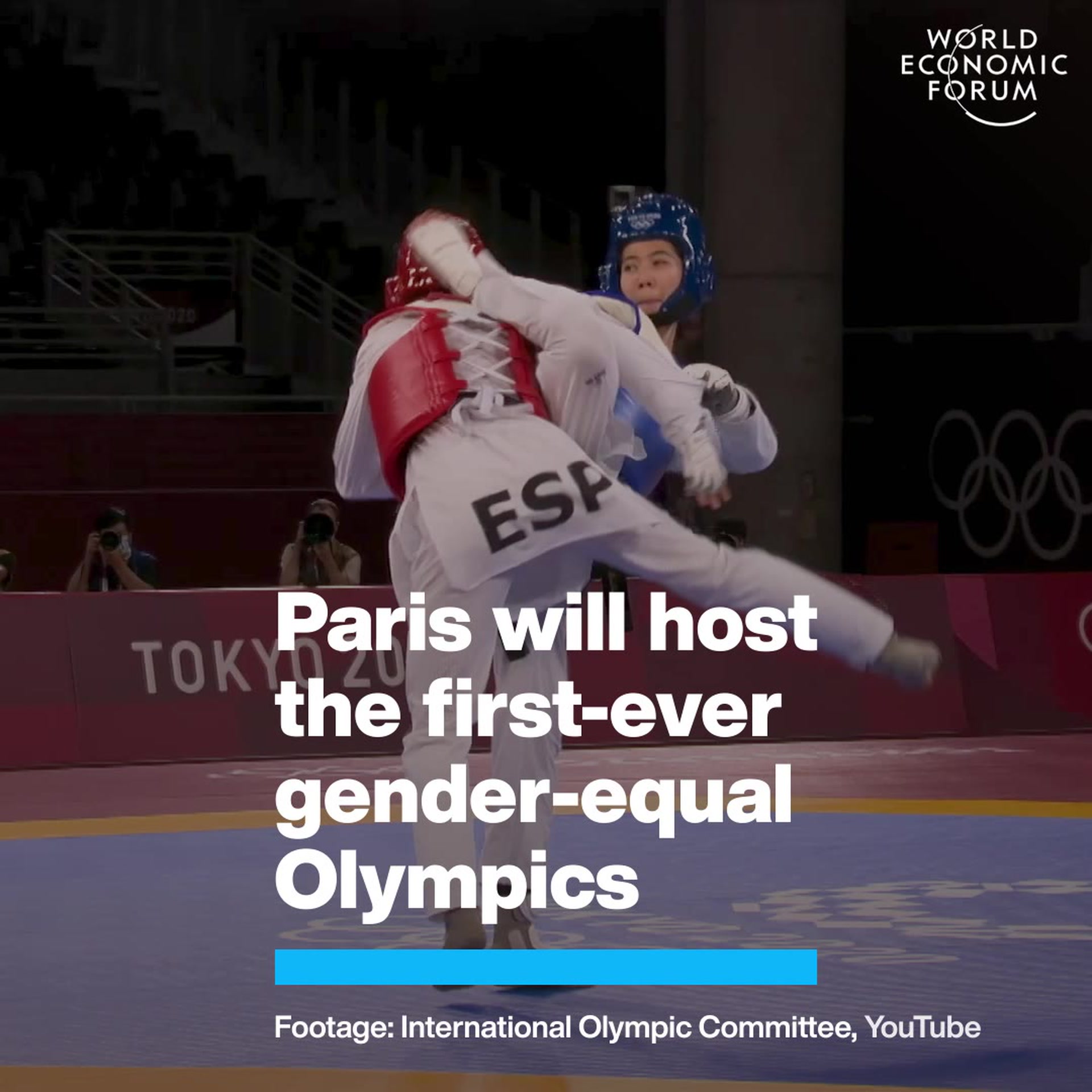Art and literature are vital to democracy - here’s why

With everything that's going on in the world, it's easy to question the value of telling stories or making sculptures. Image: REUTERS/Olivia Harris
Miguel Syjuco
Assistant Professor of Practice, Literature and Creative Writing, New York University Abu Dhabi
Get involved with our crowdsourced digital platform to deliver impact at scale
Stay up to date:
Arts and Culture
Why are we here? Why was I created? What’s the purpose of this thing called life?
To artists, whose essential purpose is creation, these grand questions are felt profoundly — the human condition is our stock in trade, even if it’s incredibly privileged to ponder it as one’s profession. As millions struggle to make enough money to eat, we struggle to make art. This is why every serious artist, at some point, questions: is what I do useful, or relevant to everyone — or is it simply luxurious?
As a creative writing practitioner and teacher, I wrestle with this constantly.
Beauty, identity, discourse, documentation, exaltation, or even just exposing a stink does indeed benefit humanity. But when the climate is changing alarmingly, and millions displaced by war are unwelcome in most places, and our leaders increasingly justify abusive power, it’s easy to question the value of telling stories or building sculpture. After all, what does a painting give to the populace? How can a writer take on a president?
The answers, perhaps, are found in art itself. One success proves the potential of all the rest.
If you remember in 2003, when U.S. Secretary of State Colin Powell was to deliver to the United Nations a declaration of war against Iraq, the tapestry depicting Pablo Picasso’s Guernica was covered up. It was said that the image of the fascist bombardment of civilians was too shameful to face. How could we discuss an unprompted war in front of one of history’s greatest rebukes to warfare?
The details, however, were apparently more mundane. Camera crews had simply worried about the cluttered background the cubist tapestry would present behind speaking officials. And the number of journalists attending the press conference had swelled, requiring a more capacious venue down the hall.
Those facts, it is said, were behind why Guernica was censored (so to speak). Yet the covering of it, for whatever reason, uncovered a larger truth that resonated around the world. The implicit irony became explicit commentary. Picasso had unveiled the image in 1937, yet 66 years later, and 36 years after his death, the painter was still speaking to us.

At New York University’s campus in Abu Dhabi, where I am a professor of literature and creative writing, one of my courses examines books that sought to accomplish what Guernica did. In “Novels That Changed the World,” my students wrestle with the few fictions that stretched beyond personal or literary influence and launched revolutions, addressed colonial abuse, improved public policy, forged cultural identity, or challenged repressive dogma. The 10 books span nearly a century and a half, by writers from around the world, yet, from Uncle Tom’s Cabin to The Satanic Verses, each shares a vital characteristic.
In 1896, the Filipino national hero Jose Rizal was tried for rebellion, sedition, and conspiracy, for satirizing the abuses of the colonial Spanish friars in a saga that started with his novel, Noli Me Tangere.
We all know how that turned out — he was executed by firing squad on the eve of the revolution that ousted Spain but was later hijacked by America.
In the early 1930s, Erich Maria Remarque's honest condemnation of war, All Quiet on the Western Front, resonated around the world — so much so that a club-footed, insecure little man named Joseph Goebbels orchestrated mobs to attack the screenings of the film-adaptation. It was one of the first displays of Nazi thuggery. Thousands angrily set upon cinemas across Germany and Austria, which led to a ban on the film and the novel’s burning. Goebbels dubbed such attacks as a “cleansing of the German spirit.” Remarque’s citizenship was eventually revoked and he fled his own country, while the regime pursued its lethal attacks on “non-people.”
We all know how that turned out — millions were killed systematically as a continent was devastated by war.
In 1989, Salman Rushdie published a novel that, he said, criticized “a powerful tribe of clerics” who had “taken over Islam” — the religion of his upbringing. “These are the contemporary Thought Police,” Rushdie wrote even before a fatwa was declared by Iran's Ayatollah Khomeini, who was irritated at having his past exile satirized — portrayed in the book as an exiled imam aspiring to power. Khomeini condemned the book as a tool of the “world devourers” with the “entire Zionism and arrogance behind it”— a “calculated” plot on behalf of “colonialism.” Rushdie went into hiding, and those associated with the publication suffered murders, stabbings, shootings, arson, and bombs. This was, according to Khomeini, “so that no one will dare to insult the Islamic sanctity.”
We all know how that turned out — with many people now convinced that “free speech is responsible speech,” despite the fact that what is supposedly “responsible” will always be dictated by the powerful.
In my course, my students discovered that each novel on our reading list spoke against the injustices of its time, and in doing so highlighted the injustices of today. We found in every book a stubborn insistence on speaking out.

Silence, it is said, implies consent. But that’s only half the story. Silence also confirms oppression, because the ability to speak out is too often a luxury of the privileged.
The aggressive populism we see today seems to be a testament to people refusing to be silent — and rightly so. Our societies have largely failed to provide equally for all, and technology now gives us new avenues through which to to be heard, and with which to rebel against repressive ideas and structures. New leaders have latched onto that and now seek to speak for us, even though many of them are rallying us crudely around fear and mistrust.
But there is hope where there is life, even such as it is now. Because it reveals potential. This is where, counterintuitively, literature and creative writing come in.
In 1969, Lee Kuan Yew, the president of Singapore, famously said: “Poetry is a luxury we cannot afford. What is important for pupils is not literature, but a philosophy for life.” In this, the founding father of that impressive small nation was wrong. A philosophy for life is precisely what literature teaches us.
You need only open a book, from oldest scripture to contemporary novels. Moses refused to be enslaved, Odysseus spoke truth to power, Atticus Finch did not compromise justice, and Hermione Granger showed us how things are done. Plato imagined a just nation, Thomas Paine proved the importance of universal human rights, and John Stuart Mill empowered the individual and revealed the necessity of freedom of expression.
It’s all there on paper and in the ether. The self and society, tragedy and triumph, right and wrong, values and ideals — Lee Kuan Yew’s philosophies for life are easily accessible through bookshops, libraries, and the internet.
Yet while it’s conventional that wisdom exists in literature, creative writing has always been seen as more rarified or intimidating. It has been celebrated as personally palliative, yes, but it’s never been considered a method to increase participation in society. After all, what good is composing poetry and writing stories when you need a job, or a nation must be founded, or a war has to be won, or cancer is ravaging the bodies both human and politic?
But creative writing can be anyone’s best training for speaking out — and if you’ve ever read novels, heard scripture, watched movies or TV, listened to songs, or learned folklore, then you’ve been studying your entire life how storytelling works. By applying your hand at creating it, you are not just attempting art, you are learning vital skills and life lessons.
Fiction teaches us about characters and empathy, plot and consequences, and the value of nuance to truth. Poetry teaches us how to distill language, value silence, and understand metaphor. Non-fiction (which certainly includes journalism) teaches us accountability to facts, critical thinking about the systems in society, and the importance of getting out into the world to listen to others. These are but a few of the skills one learns from writing creatively.
Are those life lessons not vital to democracy? To have a voice is to have a vote. To have a vote is to be represented in society. To represent ourselves clearly and confidently empowers us citizens to air our own concerns and our community’s grievances, to be accountable for ourselves, and to demand the accountability of our leaders. If we are not trained to articulate our arguments properly, we will never be heard legitimately, and we can be ignored too conveniently.
My own philosophy for life comes from the art of storytelling. I persevere in participating publicly in a hostile world by knowing that good always outweighs evil. This seemingly naive notion is proven by the stories every despot or mass murderer must tell of themselves.
Adolf Hitler, for example, was convinced of his righteousness; he loved his dog Blondi, was proud of his country, and thought noble ends justified his violent means. Similarly, the terrorists who flew airplanes into the World Trade Centre on September 11, 2001, did so for a glory they believed was far greater than themselves; they must have thought they were heroically righting a historic wrong. The notion of good always prevails, even in warped minds that are objectively proven to be evil.
What’s perilous, however, is when such corrupted stories are believed by others. In the Philippines, where I am from, a subtle war is taking place — one of narrative; righteousness is its abiding theme.
The dictator Ferdinand Marcos, who stole billions of dollars and denied democracy for more than a decade, is having his story posthumously recast by his children and their allies who benefit from his undemocratic legacy. Fake news sites and online propagandists are being recruited by the powers that be to undermine human rights, due process, and the checks and balances required for democracy — that system that still remains our best course towards equality and the only method to ensure the bloodless removal of leaders who may turn abusive.
History, it’s said, is written by the victors, and in so being it all but guarantees that they remain the victors. This is why it’s estimated that some 80% of our higher elected offices in the Philippines remain in the hands of dynasties — which are family businesses that will always present a conflict of interest between kin and country. The story is theirs to tell.
This is why I write for newspapers, write novels, and teach creative writing. I see it as the long game — a dialogue with the subsequent generations who will hopefully learn from our mistakes of the past. Yet sometimes it feels that our leaders are so entrenched that an artist’s only recourse is to have the last word — to be brutally honest and mocking in judgment in works that we hope will outlive even the bronze statues these leaders erect to themselves. But there’s defeat in even that; in the Philippines we’d call that konswelo de bobo — the consolation of the stupid. The last word may be consolingly and powerfully final, but it’s still retroactive.
What would be proactive is helping others develop strong voices so that we citizens are no longer just arguing fallaciously on Facebook and Twitter over the daily outrage, while unsatisfactory leaders ride our division towards the next election.
The antidote to impunity is accountability. We all know that. But accountability can only be demanded if our voices have consequence. A lone voice, or the voices of the educated elite, cannot legitimately speak for the voiceless, and so cannot be truly consequential. If a voice is a vote, then they must be raised, as a majority, in demanding truer representation and better leadership.
So there is clearly work to be done. Not all art must be inclusive, but no art should be exclusive. Neither literature nor creative writing must ever be privileged as a luxury, for our story will be too easily controlled that way. And while art itself might not change the world, it’s abundantly clear that it can empower those who will.
Don't miss any update on this topic
Create a free account and access your personalized content collection with our latest publications and analyses.
License and Republishing
World Economic Forum articles may be republished in accordance with the Creative Commons Attribution-NonCommercial-NoDerivatives 4.0 International Public License, and in accordance with our Terms of Use.
The views expressed in this article are those of the author alone and not the World Economic Forum.
The Agenda Weekly
A weekly update of the most important issues driving the global agenda
You can unsubscribe at any time using the link in our emails. For more details, review our privacy policy.
More on Arts and CultureSee all
Robin Pomeroy and Sophia Akram
April 8, 2024
Faisal Kazim
April 3, 2024
Robin Pomeroy and Linda Lacina
March 28, 2024






